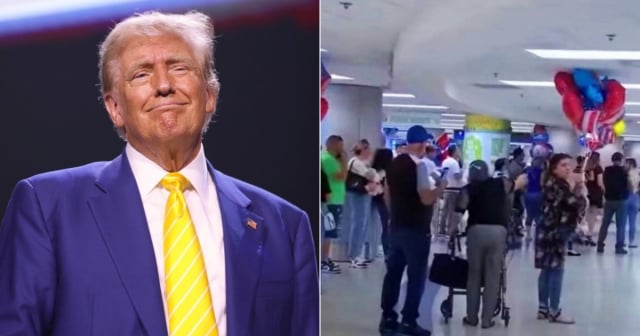The reactivation of the humanitarian parole program after being suspended for several weeks due to fraud allegations has brought changes that directly affect sponsors, who will now need to register their fingerprints at immigration offices.
An important fact is that sponsors will not receive a postal notification, as in other procedures, but will be informed digitally about the date they must provide their fingerprints.
Therefore, they should keep an eye on their online accounts to check if an appointment has been assigned to them.
In statements to Telemundo 51, immigration attorney Rosaly Chaviano clarified that this new measure seeks to incorporate sponsors into the immigration system, verifying any possible criminal backgrounds that could disqualify them.
Although an initial cost of 30 dollars was proposed for fingerprint registration, this has not been implemented, and sponsors will not have to pay for this procedure at this time.
Journalist Mario J. Pentón and lawyer Jesús Novo detailed another recent analysis on the topic, noting that sponsors can download a digital receipt from their My USCIS account and schedule an appointment for fingerprinting at any available office, regardless of their area of residence.
This digitized process is part of the efforts of the Department of Homeland Security (DHS) and USCIS to streamline the procedure and avoid delays caused by mail delivery, which tends to be unreliable.
Sponsors should frequently check their accounts on My USCIS, as notifications about fingerprint appointments are sent exclusively through this platform.
According to Pentón and Novo, it is not necessary to print the notification: it can be presented directly from the mobile phone at the assigned office. The process for taking fingerprints is functioning, although with some delays.
The average time between the request and the notification is three to four weeks.
Although recent cases are being handled first, some sponsors of previous applications have also begun to receive notifications for their fingerprints.
The fingerprint registration is an essential step for the approval of humanitarian parole, and sponsors must complete this process for their applications to move forward.
The validity of the parole remains at 24 months, which means that during this period migrants must seek alternatives to extend their stay or change their legal status.
In the specific case of Cubans, upon completing one year and one day in the United States, they are eligible to apply for residency under the Cuban Adjustment Act. For other migrants, there are options such as the U visa, the T visa, or asylum applications.
What do you think?
COMMENTFiled under:
